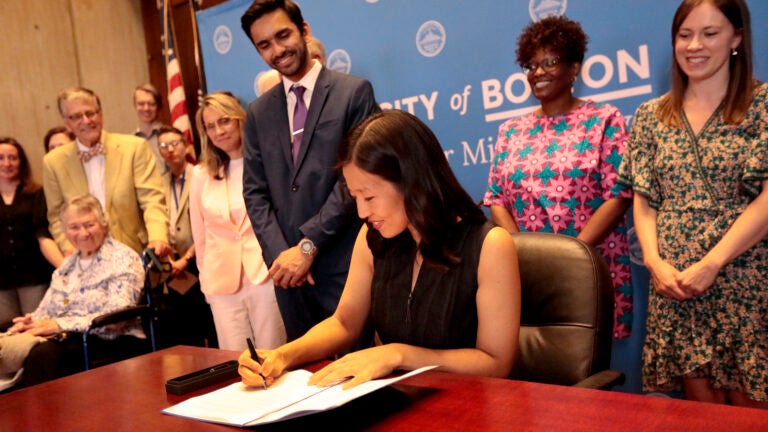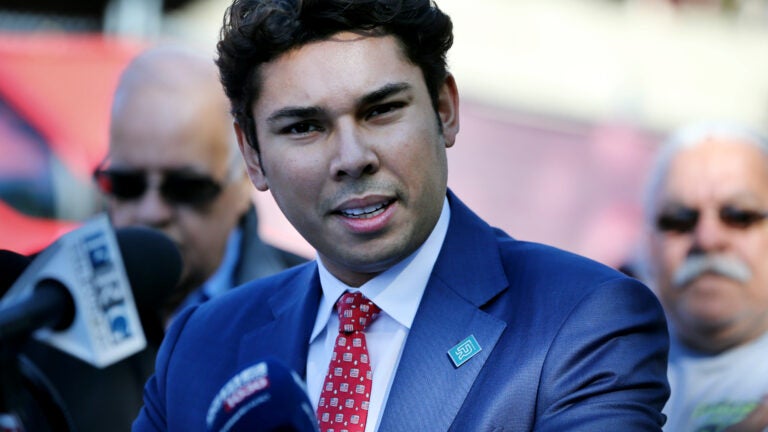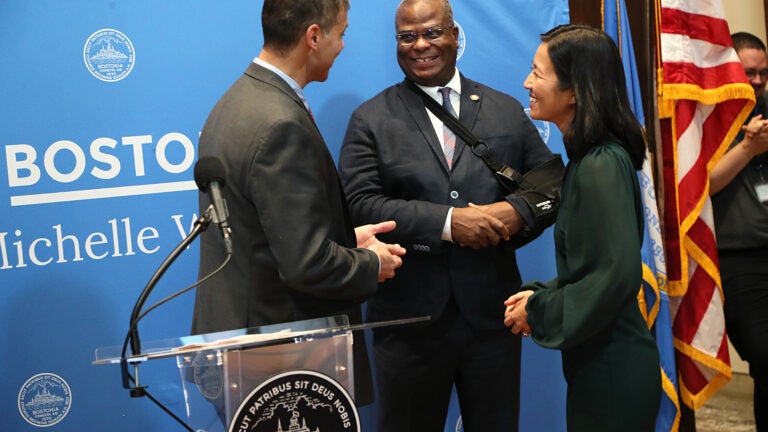Boston was right to pull out of state fossil fuel construction ban, readers say
“Our infrastructure is antiquated and cannot handle all the new all-electric buildings coming on line.”
Boston.com readers have spoken, and they said the city was right to pull out of a program that would have banned fossil fuels in new construction.
The state pilot program had open spots for 10 communities, nine of which were already taken. Boston, along with Northampton, Salem, and Somerville, were vying for the final spot.
Boston was deemed unlikely to be accepted because its age and energy demands were “electrically similar” to a few other communities that have already been selected, such as Cambridge, Brookline, and Arlington, a spokesperson for the state Department of Energy Resources told the Boston Globe. The pilot program was designed to collect data from a diverse group of municipalities.
Boston.com readers expressed similar doubts about the city’s ability to handle an electric system, given its older infrastructure.
“Our infrastructure is antiquated and cannot handle all the new all-electric buildings coming on line. We also use fossil fuels to power our electric power plants, so either way I don’t see how this is changing much of anything with emissions,” Christopher D. from Malden said.
Buildings account for nearly 70% of greenhouse gas emissions in Boston. Boston’s Building Emissions Reduction and Disclosure Ordinance (BERDO) was enacted in 2013 and amended in 2021 to give the city authority to set emissions standards for large existing buildings. The city aims to reduce emissions gradually to net zero by 2050.
Of the 183 readers who responded to our poll about the city’s decision to pull out of the program, the majority (73%) said they were pleased with the city’s decision, with 17% disappointed, and 7% indifferent.
Even though Boston city officials repeatedly publicized its importance and the steps they were taking to apply for the program, Mayor Michelle Wu expressed uncertainty that the city was likely to be accepted.
During a segment on GBH’s Boston Public Radio, Wu said there was simply not enough time to complete the necessary planning and community engagement “in a thoughtful way” in time for the application deadline, and that her administration had also received some hints that Boston was unlikely to be selected for the program.
“We had to make a choice: do we rush the engagement with community to do this by the deadline for a program that there was little chance we were actually going to get selected for, or to find a way to try to expand the program, advocate, basically give up that last slot to do it a different way for Boston and reach it through a more meaningful and sustained community effort,” Wu said on GBH.
Despite pulling out of the program, Wu underscored the city’s commitment to sustainability and goal to be fossil-fuel-free.
“Truly the decision was not about whether we want to move forward and be a fossil fuel-free city or not,” Wu said on GBH. “We are doing it one way or the other. We are also committed to doing it in a way that brings along our entire workforce, including those who will need to transition away from fossil fuel industries.”
Read below to see what readers had to say about the decision to pull out of the pilot program.
Some responses have been lightly edited for clarity.
What do you think about Boston pulling out of applying to the program?
I’m pleased
“I’m all for saving the environment and using alternative energy sources. However, the infrastructure for these alternative energy sources is simply not readily available yet. You can’t just flip a switch and eliminate fossil fuels. There has to be a reasonable transition period. That goes for any technological advancements.” — Bill, Brighton
“Solar in New England is weak, especially during the winter. We aren’t Arizona and we don’t get a lot of sun. The reality is we need natural gas — we are a cold, dark place four months a year. Focusing so intently on electrifying, even when much of it is ultimately generated with fossil fuels, is expensive, hurts the population financially, and ultimately does very little to prevent climate change.” — James, Jamaica Plain
“Don’t think the technology is near ready. The towns where the bans are in place are unlikely to have much new construction.” — C.V., Cape Cod
“We are in no way ready to abandon fossil fuels completely, and think about how many tradesmen you would put out of work.” — Gigi, Newton
“The effect on development and jobs would be catastrophic. There needs to be a multi-year plan way beyond the two to three-year window to effectively roll the idea out.” — Ric, Dorchester
“Developers and homeowners of condos in new developments should have the option of either gas or electric. Many renters and owners prefer cooking with gas but heating with electricity. New developments should have the choice when starting construction and not be forced one way or the other.” — Marc, Melrose
I’m disappointed
“As the capital city of Mass., it would be much more significant to the numbers and representation of environmental concerns [had Boston been involved]. Climate change needs to be prioritized now. After the hottest year on record and Boston’s already precarious flooding concerns (never mind future sea level rise threats) it should be a no-brainer.” — Lisa C., Canton
“Mayor Wu stated in her speeches prior to getting elected that she wanted to get Boston into these programs, and instead of doing just that, she failed to even submit the plans early. This is just one of the many broken promises from Mayor Wu.” — Steve, West Roxbury
“It sounds less that Boston is stepping out of it, and more that the committee has chosen elsewhere to address resources. Certainly would love the largest city to lead the charge. If anything, Worcester should be the second largest city and most likely to expand in the next ten years. Smaller towns and cities should also be able to get a chance to do this. Disappointed, sure, but not with Wu, rather, the committee designating the resources.” — Ben, Malden
“Boston would provide the greatest incremental reduction in emissions with the ban because it is the largest overall building emitter due to its size. Pilot data collection will still be very valuable even if there are similarities with other communities.” — Bob F., Bedford
“Boston should be a leader in the renewable energy revolution because of our investment in high tech and education. In other words, the future.” — Kerry N., Allston
“No issue is more important than the climate emergency; all other issues are fundamentally impacted by it. As the largest city in the state, Boston needs to lead in moving away from fossil fuel in order to move the whole Commonwealth in that direction, and as a model to other cities and states. This failure to apply is a betrayal of the residents of Boston and the Commonwealth.” — Linden J., Cambridge
I’m indifferent
“The situation with natural gas is complicated…” – Dinos G., Concord
“I think there are other towns/cities that deserve consideration.” – Jeff W., Framingham
“The reality is most of the electricity being used for the buildings will come from natural gas plants.” – J.C., Attleboro
Boston.com occasionally interacts with readers by conducting informal polls and surveys. These results should be read as an unscientific gauge of readers’ opinion.









Be civil. Be kind.
Read our full community guidelines.